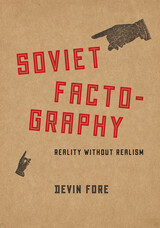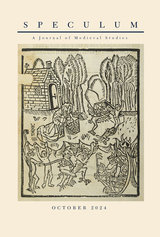10 start with R start with R
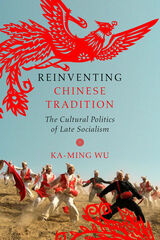
Ka-ming Wu's ethnographic account of contemporary Yan'an documents how people have reworked the revival of three rural practices--paper-cutting, folk storytelling, and spirit cults--within (and beyond) the socialist legacy. Moving beyond dominant views of Yan'an folk culture as a tool of revolution or object of market reform, Wu reveals how cultural traditions become battlegrounds where conflicts among the state, market forces, and intellectuals in search of an authentic China play out. At the same time, she shows these emerging new dynamics in the light of the ways rural residents make sense of rapid social change.
Alive with details, Reinventing Chinese Tradition is an in-depth, eye-opening study of an evolving culture and society within contemporary China.
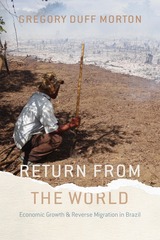
In Return from the World, anthropologist Gregory Duff Morton traces the migrations of Brazilian workers who leave a thriving labor market and return to their home villages to become peasant farmers. Morton seeks to understand what it means to turn one’s back deliberately on the promise of economic growth.
Giving up their positions in factories, at construction sites, and as domestic workers, these migrants travel thousands of miles back to villages without running water or dependable power. There, many take up subsistence farming. Some become activists with the MST, Brazil’s militant movement of landless peasants. Bringing their stories vividly to life, Morton dives into the dreams and disputes at play in finding freedom in the shared rejection of growth.
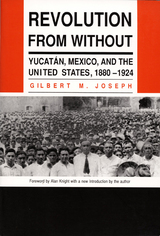
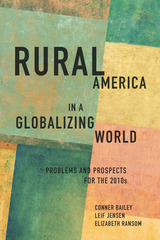
This fourth Rural Sociological Society decennial volume provides advanced policy scholarship on rural North America during the 2010’s, closely reflecting upon the increasingly global nature of social, cultural, and economic forces and the impact of neoliberal ideology upon policy, politics, and power in rural areas.
The chapters in this volume represent the expertise of an influential group of scholars in rural sociology and related social sciences. Its five sections address the changing structure of North American agriculture, natural resources and the environment, demographics, diversity, and quality of life in rural communities.


Returning to Kaixian'gong in 1957 and again in the 1980s, Fei examined the changes that had occurred since his initial research. Three essays that resulted from these follow-up studies are included in this collection, providing a rare summary and analysis of developments in the village between 1936 and 1986. Also included here are four articles based on Fei's 1983-84 research in other areas of Jiangsu province. His explorations of the contrast between the wealth of southern Jiangsu and the long-standing poverty of the northern half of the province address key issues of public policy in China today. Useful to students of rural sociology as well as of Chinese history, politics, economics, and anthropology, this collection will provide an overview not only of developments in the small towns of China but also of Fei's thought.
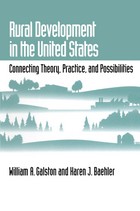
Rural Development in the United States presents a comprehensive evaluation of the economic, environmental, and political implications of past rural development and a thorough consideration of the directions in which future development efforts should go. The authors have assembled the best of what is being thought and done with regard to rural development in the United States, and place it in a broad theoretical, historical, and geographical context. The book provides:
- a summary of the key findings in rural development research of the past twenty years
- an integration of development theory and practical experience
- a bridge between the related but often isolated disciplines that inform rural development
- a catalyst for new thinking in the area of rural development
- analysis of the key economic sectors in rural areas: natural resources, the service sector, elderly services, telecommunications, manufacturing, tourism, and high-technology
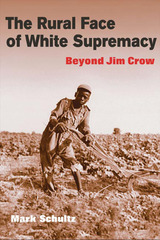

Leonard Friesen presents a study of the transformation of New Russia—the region north of the Black and Azov seas—from its conquest by the Russian Empire in the late eighteenth century to the revolutionary tumult of 1905. Friesen is particularly interested in the dynamic and multifaceted relations between the region’s peasants, European colonists, and Russian estate owners. He gives special attention to the settlement process whereby once free peasants were enserfed within a generation, as well as the period of servile emancipation after 1861, when the paths of the region’s agriculturalists converged in unexpected ways. Overall, Friesen sees the region as vital to an understanding of the empire as a whole. He demonstrates how peasants, nobles, and estate owners were key actors in a series of rural revolutions that eventually threatened the empire itself.
This book contributes to our understanding of Imperial Russia, as well as contemporary Ukraine, by describing and analyzing rural developmental patterns over time. It explores how, when, and why agriculturalists made adjustments to long-established agrarian and social practices, and provides a fresh perspective on the link between the end of empire and the rural developments that preceded it.
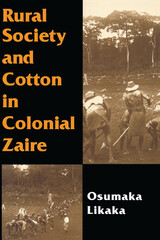
As local plots of food crops grown by individual households gave way to commercial fields of cotton, a whole host of social, economic, and environmental changes followed. Likaka reveals how food shortages and competition for labor were endemic, forests were cleared, social stratification increased, married women lost their traditional control of agricultural production, and communities became impoverished while local chiefs enlarged their power and prosperity.
Likaka documents how the cotton regime promoted its cause through agricultural exhibits, cotton festivals, films, and plays, as well as by raising producer prices and decreasing tax rates. He also shows how the peasant laborers in turn resisted regimented agricultural production by migrating, fleeing the farms for the bush, or sabotaging plantings by surreptitiously boiling cotton seeds. Small farmers who had received appallingly low prices from the cotton companies resisted by stealing back their cotton by night from the warehouses, to resell it in the morning. Likaka draws on interviews with more than fifty informants in Zaire and Belgium and reviews an impressive array of archival materials, from court records to comic books. In uncovering the tumultuous economic and social consequences of the cotton regime and by emphasizing its effects on social institutions, Likaka enriches historical understanding of African agriculture and development.
READERS
Browse our collection.
PUBLISHERS
See BiblioVault's publisher services.
STUDENT SERVICES
Files for college accessibility offices.
UChicago Accessibility Resources
home | accessibility | search | about | contact us
BiblioVault ® 2001 - 2024
The University of Chicago Press



